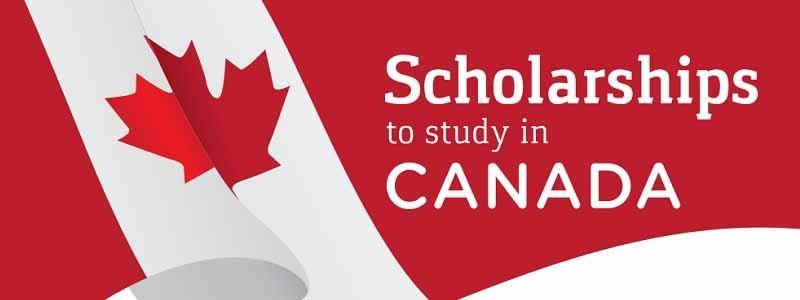Planning to study in Canada and wondering, “Can I get a scholarship?” The short answer is yes! Canadian universities, government programs, and independent organizations offer numerous scholarships to help students achieve their academic goals. Whether you’re pursuing an undergraduate degree, a master’s program, or a PhD, the right scholarship can help reduce financial stress.
This guide will walk you through scholarship opportunities, eligibility criteria, and how to apply. By the end, you’ll be ready to confidently take the next steps toward funding your studies in Canada.
Why Study in Canada?
Before we explore scholarships, here’s why Canada is a top destination for students:
- Quality Education: Home to globally ranked universities like the University of Toronto and McGill University.
- Diverse Culture: Canada prides itself on inclusivity and welcomes international students from across the globe.
- Post-Graduation Opportunities: Canada’s Post-Graduation Work Permit (PGWP) allows you to stay and work after completing your studies.
But studying abroad can be expensive. Scholarships are your best bet to ease that burden and focus on achieving your dreams.
Table of Contents
Types of Scholarships in Canada
Scholarships in Canada fall into a few categories. Knowing the type of scholarship you qualify for can help narrow your search.
1. Government Scholarships
Canadian government programs provide financial support for international students.
Examples:
- Vanier Canada Graduate Scholarships (Vanier CGS)
Ideal for PhD students, this merit-based scholarship offers CAD 50,000 per year for three years.
- Canada-ASEAN Scholarships and Educational Exchanges for Development (SEED)
This scholarship benefits students from ASEAN countries pursuing short-term studies in Canada.
2. University-Specific Scholarships
Major Canadian universities provide scholarships based on academic performance, extracurricular activities, and financial need.
Examples:
- Lester B. Pearson International Student Scholarships (University of Toronto)
Covers tuition and living expenses for exceptional international students.
- International Major Entrance Scholarship (University of British Columbia)
Recognizes academically strong international undergraduates.
3. Private and External Scholarships
Organizations, nonprofits, and businesses also offer scholarships.
Examples:
- Shastri Indo-Canadian Institute Scholarships
Targets Indian students pursuing research-focused studies.
- Trudeau Foundation Scholarships
Ideal for doctoral students engaged in research supporting the foundation’s objectives.

Data Table of Top Scholarships in Canada
| Scholarship Name | Eligibility | Coverage | Annual Amount |
|---|---|---|---|
| Vanier Canada Graduate Scholarships | PhD students | Tuition and living costs | CAD 50,000 |
| Lester B. Pearson International Scholarships | Undergraduate students (merit) | Full tuition + living | Variable |
| UBC International Major Entrance Scholarship | Undergraduate students (merit) | Tuition fees | Variable |
| Trudeau Foundation Scholarships | Doctoral students | Tuition and research fees | CAD 40,000 + research |
| Canada-ASEAN SEED Program | Students from ASEAN countries | Tuition and travel costs | Variable |
Eligibility Criteria
While every scholarship has unique requirements, here are some common eligibility criteria:
- Academic Excellence – Most scholarships require strong grades or remarkable academic achievements.
- Extracurricular Engagement – Demonstrating leadership, community service, or other notable activities can give you an edge.
- Financial Need – Some scholarships are exclusively for students requiring financial assistance.
- Research Proposals – Scholarships for graduate students often require a well-defined research project.
- Nationality – Certain scholarships target students from specific countries.
Make sure to carefully read the eligibility requirements for every scholarship you’re considering to determine your fit.
How to Apply for a Scholarship in Canada
1. Research Early
Start your research at least a year before your anticipated start date. Keep track of deadlines in a document or calendar to ensure timely submissions.
2. Prepare Strong Application Documents
Scholarship committees look for impactful applications. Ensure you prepare:
- A well-written Statement of Purpose (SOP)
- Letters of Recommendation
- Transcripts and grade reports
- Proof of extracurricular achievements
3. Meet Application Deadlines
Applications submitted after the deadline are disqualified. Submit all documents on time.
4. Apply to Multiple Scholarships
To improve your chances, apply for multiple scholarships that fit your background.
Frequently Asked Questions
1. Are scholarships in Canada available only for international students?
No. While many scholarships target international students, Canada also offers a wide array of scholarships for local students, especially at the graduate level.
2. Can I apply for scholarships while studying in Canada?
Yes, many scholarships are available for current students. Keep an eye on university websites or speak to your student services department for ongoing opportunities.
3. Do all scholarships require academic excellence?
Not all scholarships are academically focused. Some prioritize community involvement, leadership skills, unique talents, or financial need.
4. How competitive are Canadian scholarships?
Competition can be high, especially for merit-based scholarships at top universities. Tailor your applications to highlight your unique strengths and align with the scholarship criteria.
5. Can scholarships cover all my expenses?
Some scholarships, like the Lester B. Pearson Scholarship, cover tuition and living expenses. However, many only cover partial costs, so plan accordingly.
Begin Your Scholarship Journey Today
Getting a scholarship in Canada is achievable with the right research, preparation, and persistence. Start exploring available options, focus on crafting a compelling application, and don’t hesitate to reach out to mentors or advisors for guidance.
If you’re ready to take the leap toward funding your education in Canada, start your search today! From government-funded opportunities to personalized university awards, there’s a scholarship waiting for you.


